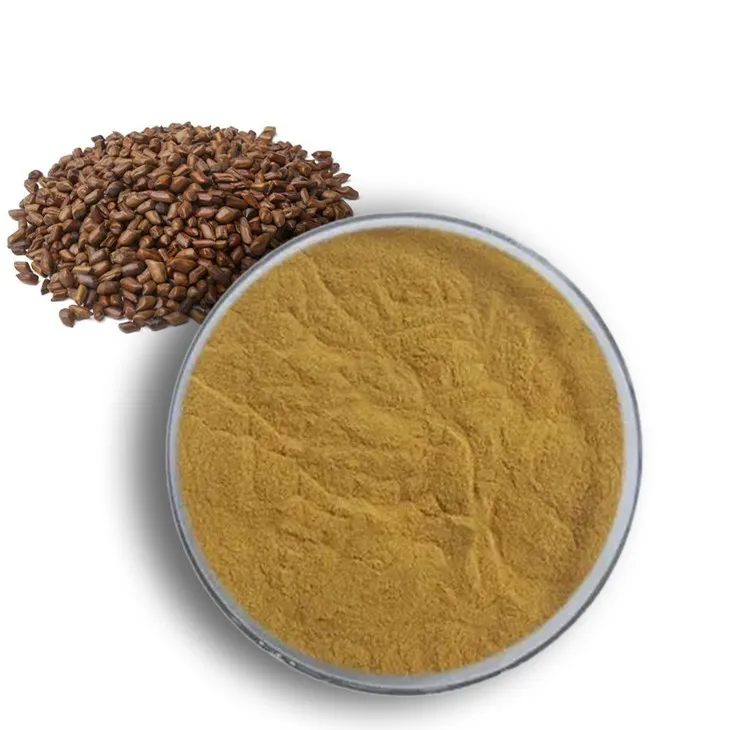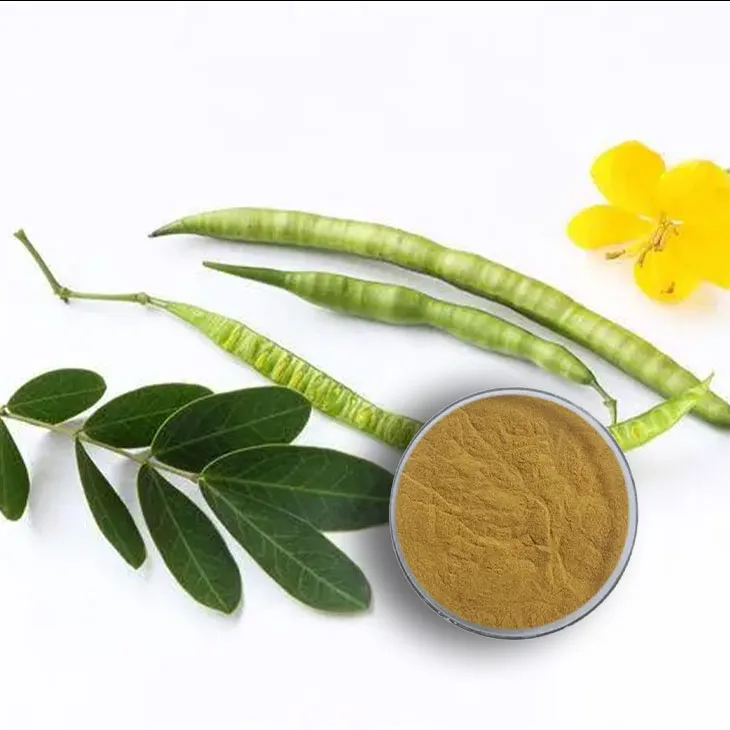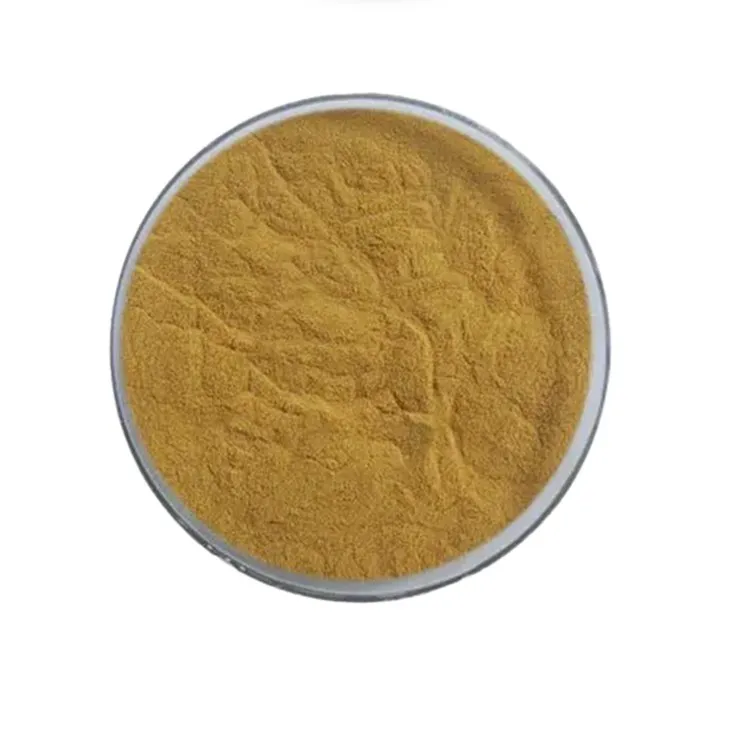- 0086-571-85302990
- sales@greenskybio.com
Nature's Antioxidant: The Anti-Inflammatory and Antioxidant Properties of Cassia Seed Extract
2024-07-29

1. Introduction
In recent years, there has been a growing interest in natural compounds with health - promoting properties. Among these, Cassia Seed Extract has emerged as a particularly promising candidate. Cassia seeds, which are derived from the Cassia plant, have been used in traditional medicine for centuries. However, it is only in recent times that modern scientific research has begun to uncover the underlying mechanisms behind their beneficial effects. The anti - inflammatory and antioxidant properties of Cassia Seed Extract are of particular interest, as these properties can potentially play a significant role in preventing and treating a wide range of diseases.

2. Inflammation: A Double - Edged Sword
2.1 The Biology of Inflammation
Inflammation is a natural and essential biological response in the body. It is the body's way of protecting itself against harmful stimuli such as pathogens, damaged cells, or irritants. When the body detects such threats, it activates a complex cascade of immune responses. This involves the release of various inflammatory mediators, including cytokines, chemokines, and prostaglandins. These mediators recruit immune cells to the site of injury or infection, where they work to eliminate the threat and initiate the repair process.
2.2 Inflammation Gone Awry
While acute inflammation is a necessary and beneficial process, chronic inflammation can be extremely harmful. Chronic inflammation occurs when the body's inflammatory response is dysregulated and persists over a long period of time. This can be caused by a variety of factors, including persistent infections, autoimmune disorders, exposure to environmental toxins, and lifestyle factors such as a poor diet and lack of exercise. Chronic inflammation has been linked to a wide range of diseases, including heart disease, diabetes, cancer, neurodegenerative diseases, and autoimmune disorders.
3. Cassia Seed Extract and Anti - Inflammatory Effects
3.1 Modulating Inflammatory Pathways
Cassia seed extract has been shown to possess anti - inflammatory properties by modulating the body's inflammatory pathways. One of the key ways in which it does this is by inhibiting the production of pro - inflammatory cytokines. For example, research has demonstrated that certain components in Cassia seed extract can reduce the levels of interleukin - 6 (IL - 6) and tumor necrosis factor - alpha (TNF - α), two major pro - inflammatory cytokines. By reducing the levels of these cytokines, Cassia seed extract can help to dampen the overall inflammatory response in the body.
3.2 Impact on Immune Cells
In addition to modulating cytokine production, Cassia seed extract can also influence the behavior of immune cells. It has been shown to have an effect on macrophages, which are key immune cells involved in the inflammatory response. Cassia seed extract can regulate the activation state of macrophages, preventing them from over - reacting and producing excessive amounts of inflammatory mediators. This helps to maintain a balanced immune response and reduces the risk of chronic inflammation.
4. Oxidative Stress and the Role of Antioxidants
4.1 The Concept of Oxidative Stress
Oxidative stress occurs when there is an imbalance between the production of free radicals and the body's antioxidant defenses. Free radicals are highly reactive molecules that are generated as a by - product of normal cellular metabolism. However, when the production of free radicals exceeds the body's ability to neutralize them, they can cause damage to cells and tissues. This damage can lead to a variety of health problems, including premature aging, cancer, heart disease, and neurodegenerative diseases.
4.2 Antioxidants: Nature's Defense Against Free Radicals
Antioxidants are substances that can neutralize free radicals and protect the body from oxidative damage. The body has its own endogenous antioxidant defense system, which includes enzymes such as superoxide dismutase (SOD), catalase (CAT), and glutathione peroxidase (GSH - Px). However, this endogenous system can be overwhelmed in the face of excessive free radical production. Therefore, dietary antioxidants play an important role in supplementing the body's antioxidant defenses.
5. Antioxidant Properties of Cassia Seed Extract
5.1 Free Radical Scavenging
Cassia seed extract contains a variety of antioxidant components that are capable of scavenging free radicals. These components can directly interact with free radicals, neutralizing their reactivity and preventing them from causing damage to cells. Research has shown that Cassia seed extract can effectively scavenge a wide range of free radicals, including superoxide anions, hydroxyl radicals, and peroxyl radicals.
5.2 Boosting Endogenous Antioxidant Enzymes
In addition to directly scavenging free radicals, Cassia seed extract can also enhance the activity of the body's endogenous antioxidant enzymes. By increasing the activity of enzymes such as SOD, CAT, and GSH - Px, Cassia seed extract can help the body to better cope with oxidative stress. This is an important aspect of its antioxidant properties, as it not only provides immediate protection against free radicals but also strengthens the body's long - term antioxidant defenses.6. Potential Applications of Cassia Seed Extract
6.1 In Medicine
The anti - inflammatory and antioxidant properties of Cassia seed extract make it a potentially valuable therapeutic agent in medicine. It could be used in the treatment of various inflammatory diseases, such as rheumatoid arthritis, inflammatory bowel disease, and asthma. In addition, its antioxidant properties may make it useful in the prevention and treatment of diseases associated with oxidative stress, such as cancer and heart disease. For example, pre - clinical studies have shown promising results in using Cassia seed extract to inhibit tumor growth in animal models.
6.2 In Skincare
The antioxidant properties of Cassia seed extract also make it an attractive ingredient in skincare products. Free radical damage is a major contributor to skin aging, causing wrinkles, fine lines, and loss of elasticity. By scavenging free radicals, Cassia seed extract can help to protect the skin from oxidative damage and slow down the aging process. It can also be used to treat skin conditions associated with inflammation, such as acne and eczema.
6.3 In Nutrition
Cassia seed extract could be incorporated into functional foods and dietary supplements as a natural source of anti - inflammatory and antioxidant compounds. This could be beneficial for individuals looking to improve their overall health and reduce the risk of chronic diseases. For example, it could be added to breakfast cereals, energy bars, or multivitamin supplements.7. Conclusion
In conclusion, Cassia seed extract is a natural compound with significant anti - inflammatory and antioxidant properties. Its ability to modulate inflammatory pathways and scavenge free radicals makes it a potentially valuable resource in the fields of medicine, skincare, and nutrition. While more research is needed to fully understand its mechanisms of action and to develop effective products based on it, the existing evidence suggests that Cassia seed extract holds great promise for promoting health and well - being. As the demand for natural health products continues to grow, Cassia seed extract is likely to attract increasing attention from researchers, healthcare professionals, and consumers alike.
FAQ:
What are the main anti - inflammatory mechanisms of Cassia seed extract?
Cassia seed extract may modulate the body's inflammatory pathways. It likely interacts with various signaling molecules and cells involved in the inflammatory response. For example, it might regulate the production of cytokines, which are key mediators of inflammation. However, the exact molecular mechanisms are still under research.
How effective is Cassia seed extract in scavenging free radicals?
The antioxidant components in Cassia seed extract are capable of scavenging free radicals. The effectiveness can vary depending on factors such as the extraction method, concentration of the extract, and the specific free radical species. Laboratory studies have shown that it can effectively neutralize certain types of free radicals, but more in - depth research is needed to fully understand its antioxidant capacity in different biological systems.
Can Cassia seed extract be used in skincare products?
Yes, it can. Given its antioxidant properties, Cassia seed extract can protect skin cells from oxidative damage. Oxidative stress can cause premature aging, wrinkles, and other skin problems. By scavenging free radicals, the extract may help maintain the health and appearance of the skin. So, it has potential for use in skincare products like creams, lotions, and serums.
What potential benefits does Cassia seed extract bring to nutrition?
In nutrition, Cassia seed extract can act as a source of antioxidants. It may be incorporated into functional foods or dietary supplements. By reducing oxidative stress and potentially having anti - inflammatory effects, it could contribute to overall health. For example, it might help in maintaining a healthy cardiovascular system or improving digestive health, although more research is required to confirm these potential benefits.
Are there any side effects of Cassia seed extract?
While Cassia seed extract has shown potential benefits, there may be potential side effects. Some people may be allergic to it. Also, if consumed in large amounts, it could potentially cause adverse effects on the digestive system or interact with certain medications. However, current research on its side effects is limited, and more studies are needed to fully understand its safety profile.
Related literature
- Antioxidant and Anti - Inflammatory Activities of Cassia Seed Extract: A Review"
- "Cassia Seed Extract: Potential Applications in Medicine Based on Its Anti - inflammatory and Antioxidant Properties"
- "The Role of Cassia Seed Extract in Skincare: An Overview of Its Antioxidant Effects"
- ▶ Hesperidin
- ▶ Citrus Bioflavonoids
- ▶ Plant Extract
- ▶ lycopene
- ▶ Diosmin
- ▶ Grape seed extract
- ▶ Sea buckthorn Juice Powder
- ▶ Fruit Juice Powder
- ▶ Hops Extract
- ▶ Artichoke Extract
- ▶ Mushroom extract
- ▶ Astaxanthin
- ▶ Green Tea Extract
- ▶ Curcumin
- ▶ Horse Chestnut Extract
- ▶ Other Product
- ▶ Boswellia Serrata Extract
- ▶ Resveratrol
- ▶ Marigold Extract
- ▶ Grape Leaf Extract
- ▶ New Product
- ▶ Aminolevulinic acid
- ▶ Cranberry Extract
- ▶ Red Yeast Rice
- ▶ Red Wine Extract
-
Bayberry Extract
2024-07-29
-
Hericium erinaceus extract powder
2024-07-29
-
Genistein
2024-07-29
-
Tongkat Ali Extract Powder
2024-07-29
-
Boswellia Serrata Extract
2024-07-29
-
Centella Asiatica Extract
2024-07-29
-
Acai Berry Extract
2024-07-29
-
Reishi mushroom extract
2024-07-29
-
Carrageenan Extract Powder
2024-07-29
-
Uridine-5'-monophosphate Disodium salt
2024-07-29





















